My 600sqft: Pastry chef Meredith Kurtzman in her colorful Soho apartment of 40 years
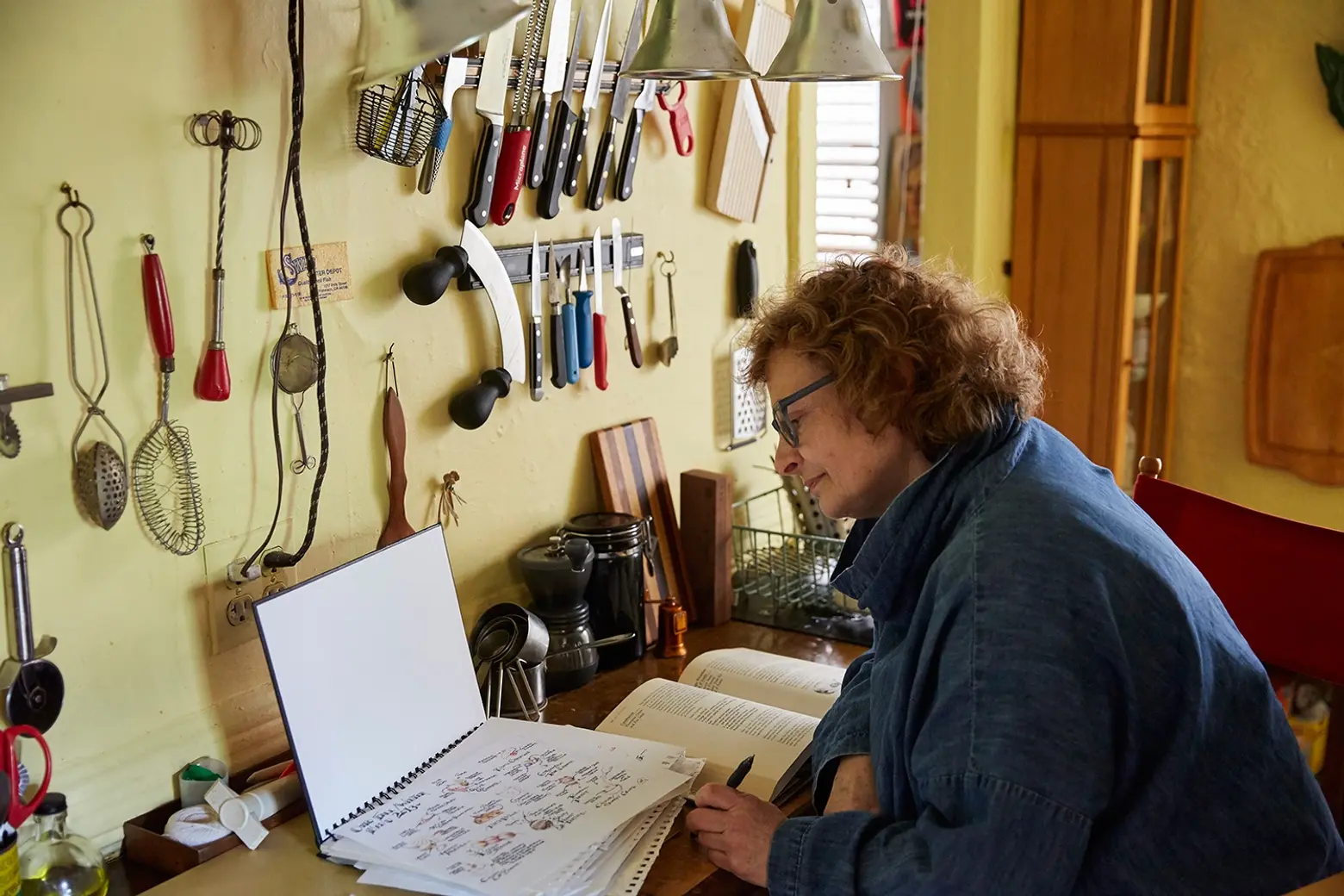
6sqft’s ongoing series “My sqft” checks out the homes of New Yorkers across all the boroughs. Our latest interior adventure brings us to the Soho apartment of pastry chef Meredith Kurtzman. Want to see your home featured here? Get in touch!
You may not know Meredith Kurtzman by name, but you can thank this spunky New Yorker for bringing great gelato to the city. A textile designer turned pastry chef, Kurtzman is lauded (at least within her industry) as “a trailblazer” in elevating ice-cream making in the U.S. Moreover she’s wholly credited with introducing chaste New York palettes to once implausible flavors like olive oil gelato and, more simply, fresh fruit sorbetto; “genius” and “a true artisan” are just a few of words that have been used to describe her.
However, while counterparts with her level of talent have catapulted themselves into the spotlight (see: Keith McNally and Bobby Flay), Meredith herself has opted for a more understated existence. She today—as she has for the last 40 years—lives in a modestly-sized but boldly colorful tenement apartment in Soho. Meredith is, in fact, one of those rare New York creatives whose real estate choices can be traced back to when Soho was a “last resort” for artists and storefronts were used as shelter. Stating the obvious, she’s seen some things.
Ahead, Meredith offers us a tour of her unique apartment, a 600-square-foot space filled with DIY projects, vintage charm, plants, and lots of color. She also shares stories of Soho in the 1970s, and where she still finds inspiration in a city that’s so different from the one she knew as a youth.
You’ve lived in some interesting spaces that very much embody that gritty, artsy NYC that doesn’t really exist anymore. Can you share a bit about your most memorable living situations?
I moved to Soho/South Village in 1972, first sharing a loft on Canal street, which was fairly primitive, then moving to a sublet downstairs. The building was an old wooden firetrap above a bar. I spent some time in London and moved back to New York during a housing crisis in 1974. A small live-in storefront on the southern tip of MacDougal Street was available and affordable at the time, so I moved into that with very few possessions. I knocked down some partitions, bought a hotplate and made it a home for two years. There was a sweet little bathroom with walls of colored glass embedded in plaster, and a garden out in the back of the window. It was a quiet street, and I worked at home with my front door open to the street in warm weather.
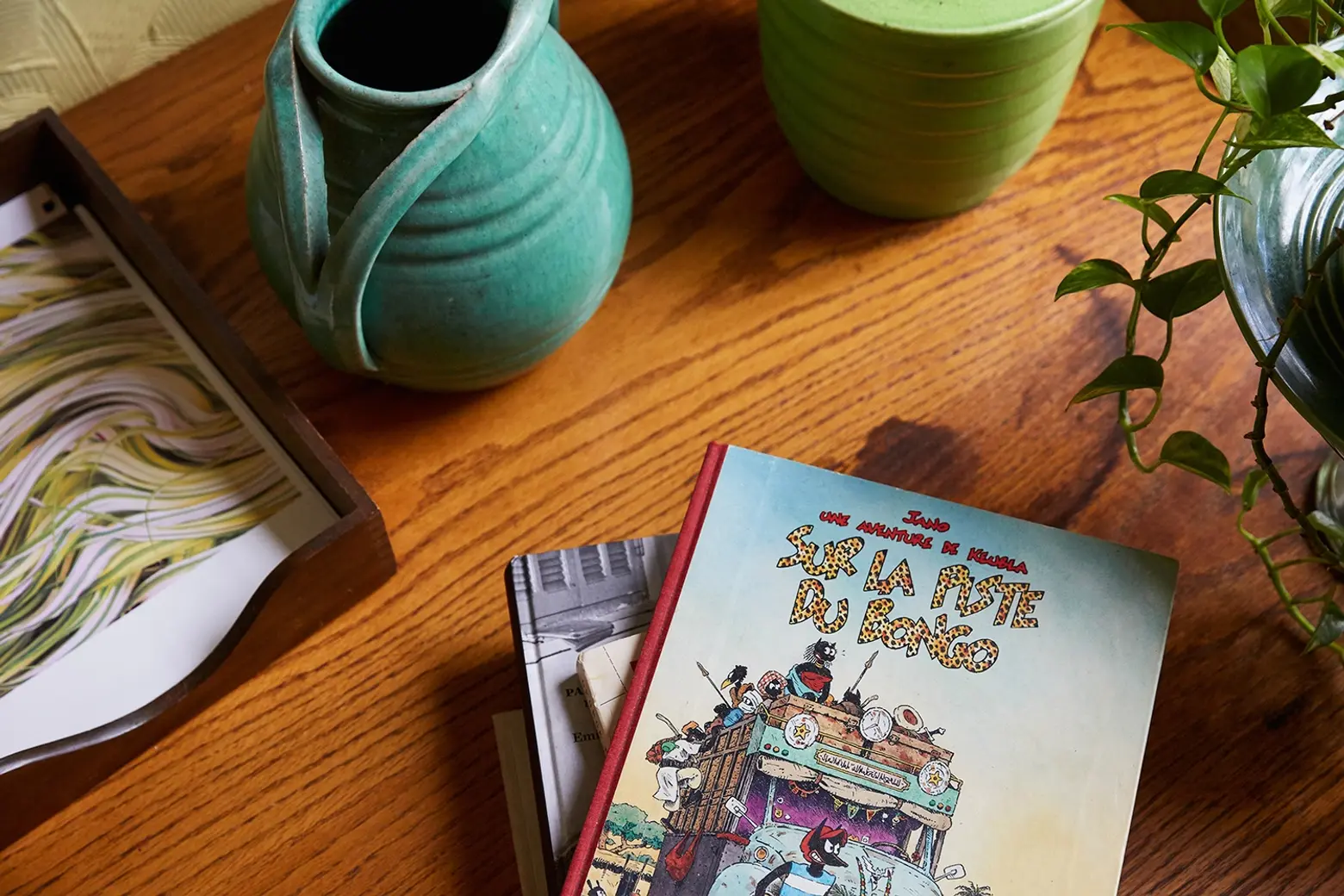
How did you end up in this apartment?
I had to vacate that storefront space at the end of ’75 and looked at a lot of grim, dark apartments in Manhattan and Brooklyn. But through word of mouth, I found a top floor walk-up in a tenement building around the corner. At the time it was painted orange with linoleum floors and there was a bathtub in the kitchen, but it had light and quiet. It had potential. I persuaded the landlord to replace the tub with a stall shower and to knock down a wall between two small rooms and strip down a few walls to brick. Other changes came over the years, all of which I did on my own.
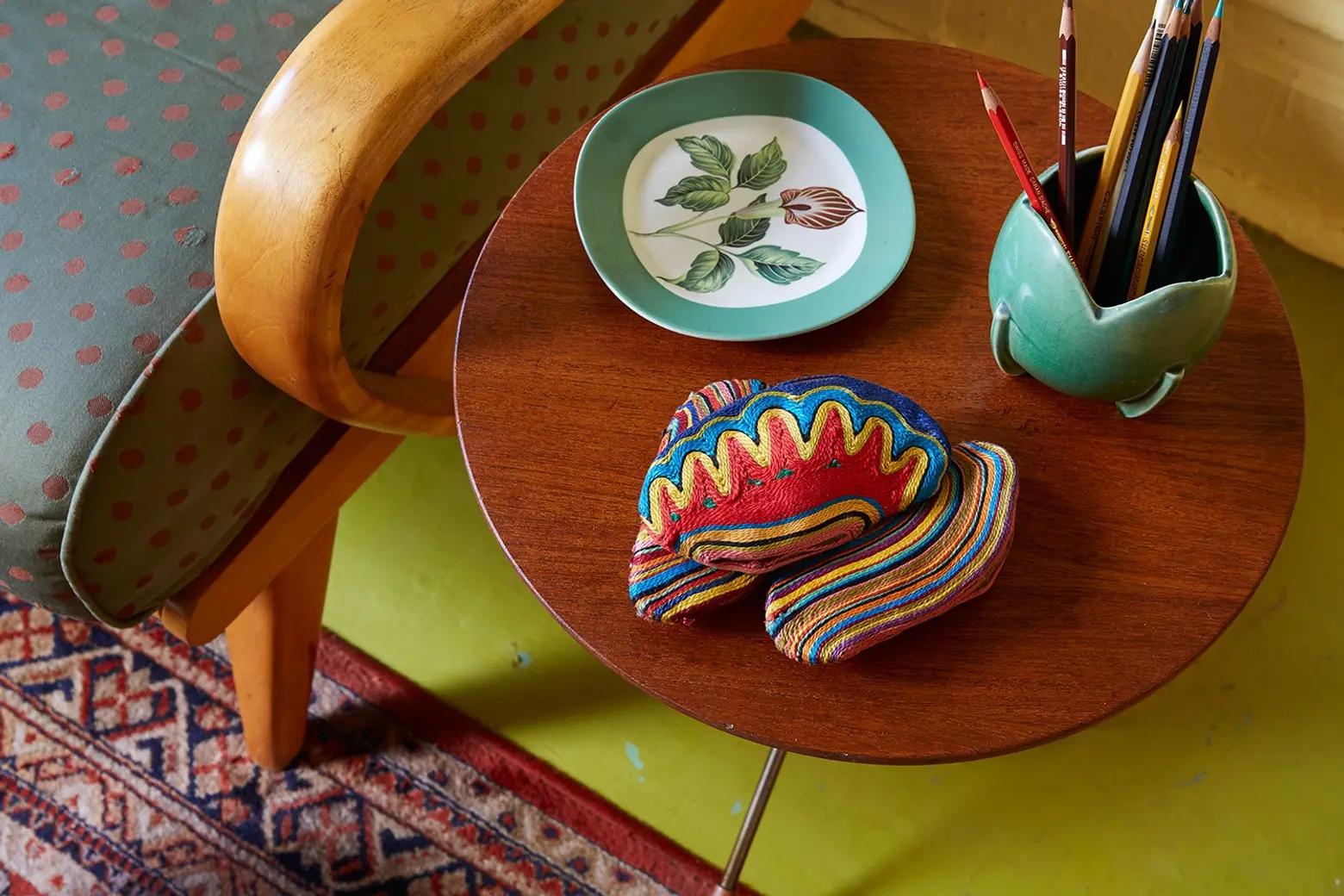
What was the neighborhood like back then?
Soho was exciting when I moved here. The neighborhood was half small industry, which yielded great scrap findings: leather, a broken mirror, great junk stores along Canal Street.
I remember Meredith Monk doing a performance piece in the parking lot behind our loft—all kinds of music and theater were happening locally. There were few bars and restaurants, and I usually walked over to Chinatown for baos and bad coffee early in the morning. I briefly worked for a woman on East Broadway who sold surplus clothing. It was piled up six-feet high with old treasures that would be unearthed when one of the piles fell down.
The South Village was a working class neighborhood with a mix of Italian and Portuguese residents, plus a lot of transient people occupying small tenement apartments. There was a bakery, vegetable store, butcher, cheesemaker, laundromat…all on my block. People used clotheslines in the yard! There were few restaurants, but that changed as Soho became a tourist destination.
You say your apartment has undergone a few different iterations. What are some of the most memorable things you’ve done from when you were in your 20s up until now?
When I moved in I disliked the linoleum floors in my living room. At first, I painted patterns on the floor, eventually finding a decent carpet to cover them up. The walls were plastered with no sheet rock and had a lot of bumps and lumps. My plastering skills were limited and so I decided to buy a lot of slow-drying plaster and I created a patterned wall using a cake decorator’s comb. It took a long time but I enjoyed the results and used a good quality matte paint to hand paint the plaster.
As I began to possess more books and equipment I needed storage space, so I built shelves and a kitchen counter using the space as efficiently as possible. I used an electric rotary saw in the middle of my small apartment. I had minimal carpentry skills and it was a mess, but it worked. I found some great furniture on the street, and as time progressed I became an avid flea market hound in the 1980s going to Sixth Avenue early in the morning on weekends, but only buying things that I loved.
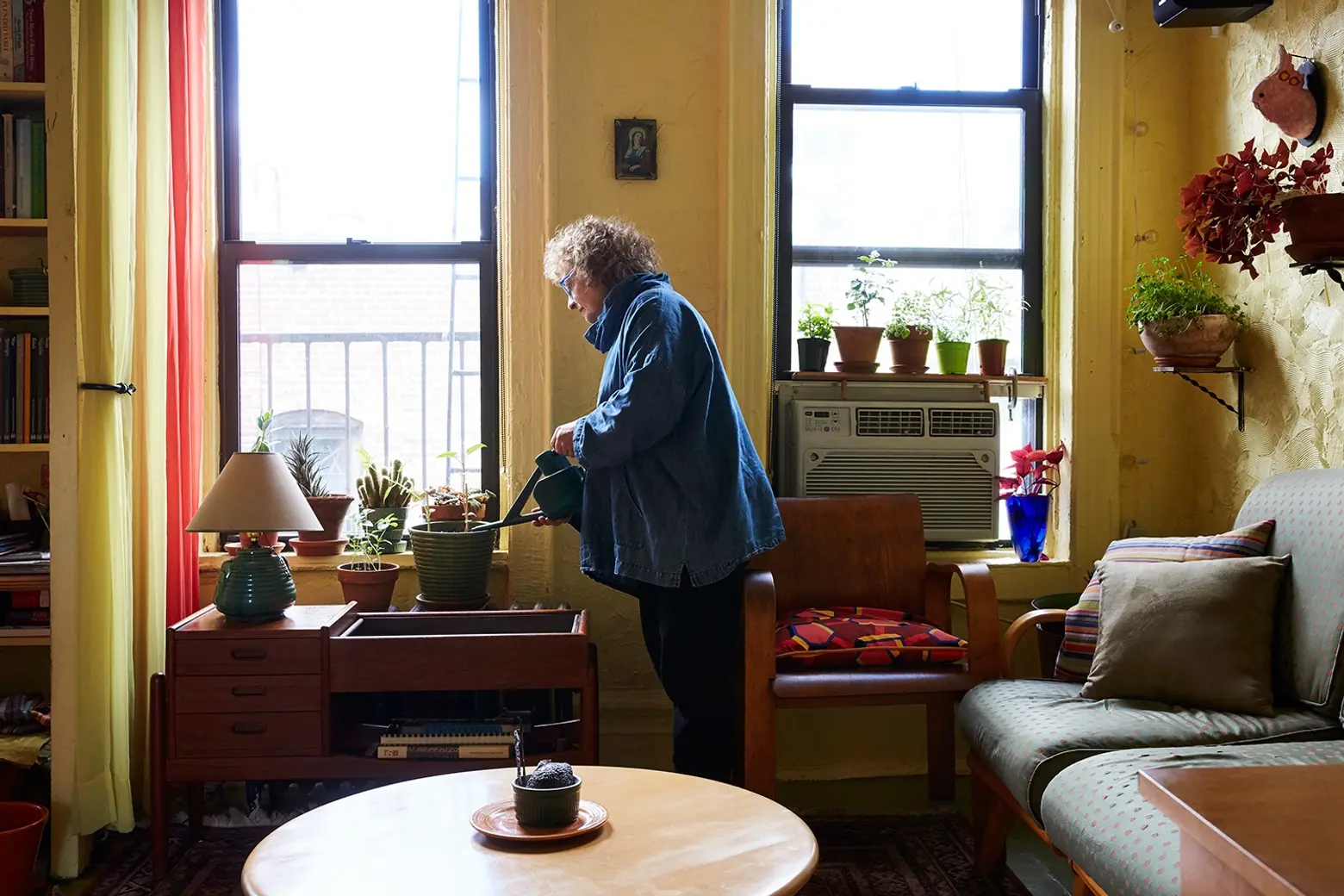
 You’ve been in your apartment a very long time but there are no signs of clutter. What are some tips you can impart when it comes to keeping a space organized and livable?
You’ve been in your apartment a very long time but there are no signs of clutter. What are some tips you can impart when it comes to keeping a space organized and livable?
Edit your possessions constantly. The maxim “possessions possess you” is quite true. Use dead space in your apartment to build out of the way storage. Open shelving keeps you on your toes. Make your bed every morning, put things away as you go along. Clutter unchecked balloons into hoarderland.
Restaurant work is good training for working clean; the efficiency of movement, keeping organized, and making maximum use out of limited space. Restaurant work often means sharing workspace, and what has always been important to me in a cooperative situation is communicating what is going on—who needs to use the oven for what, making a list of the day’s tasks, etc.
Having just one sink in my home has also bred clean habits—you don’t want to brush your teeth into a sink full of dirty dishes!
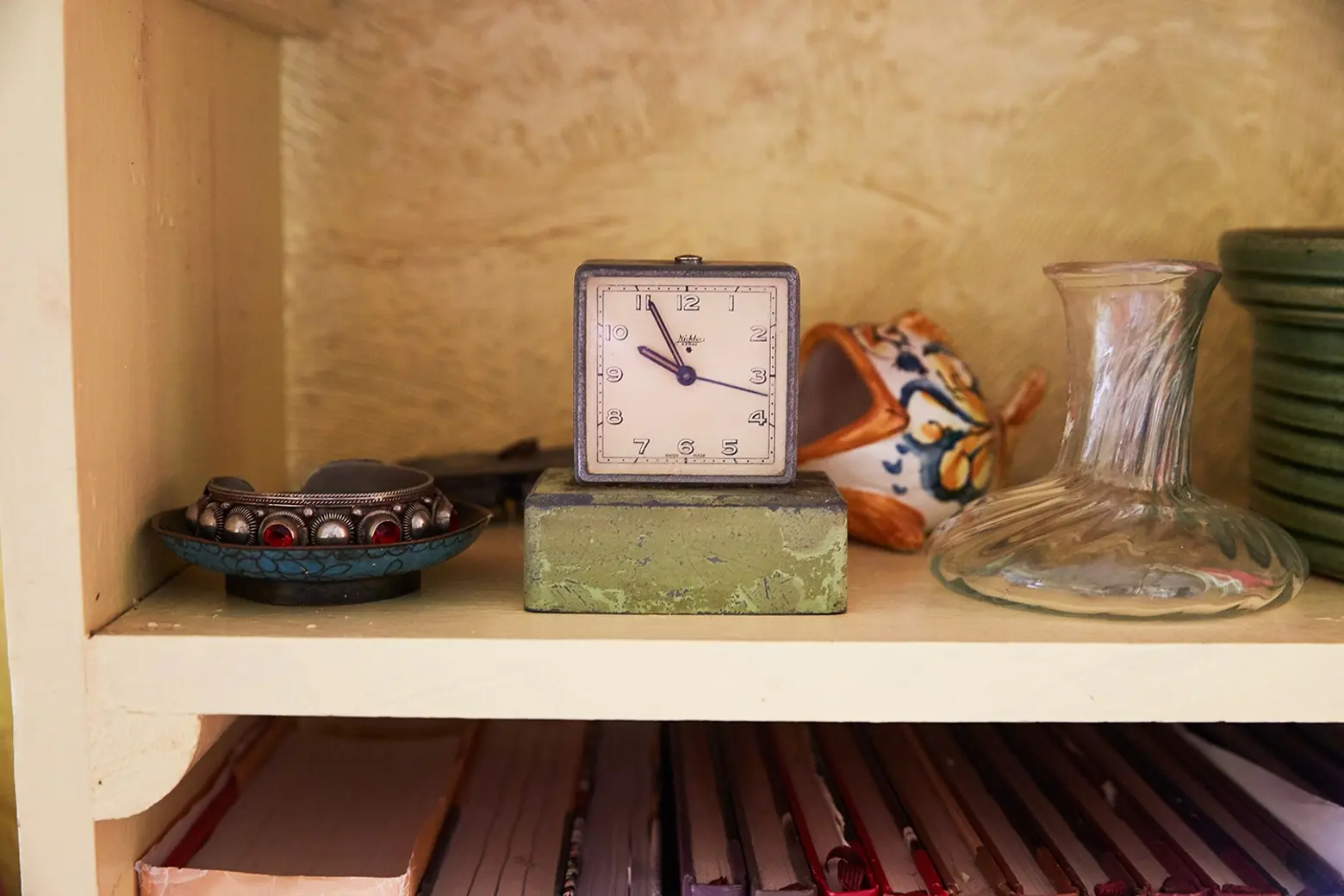
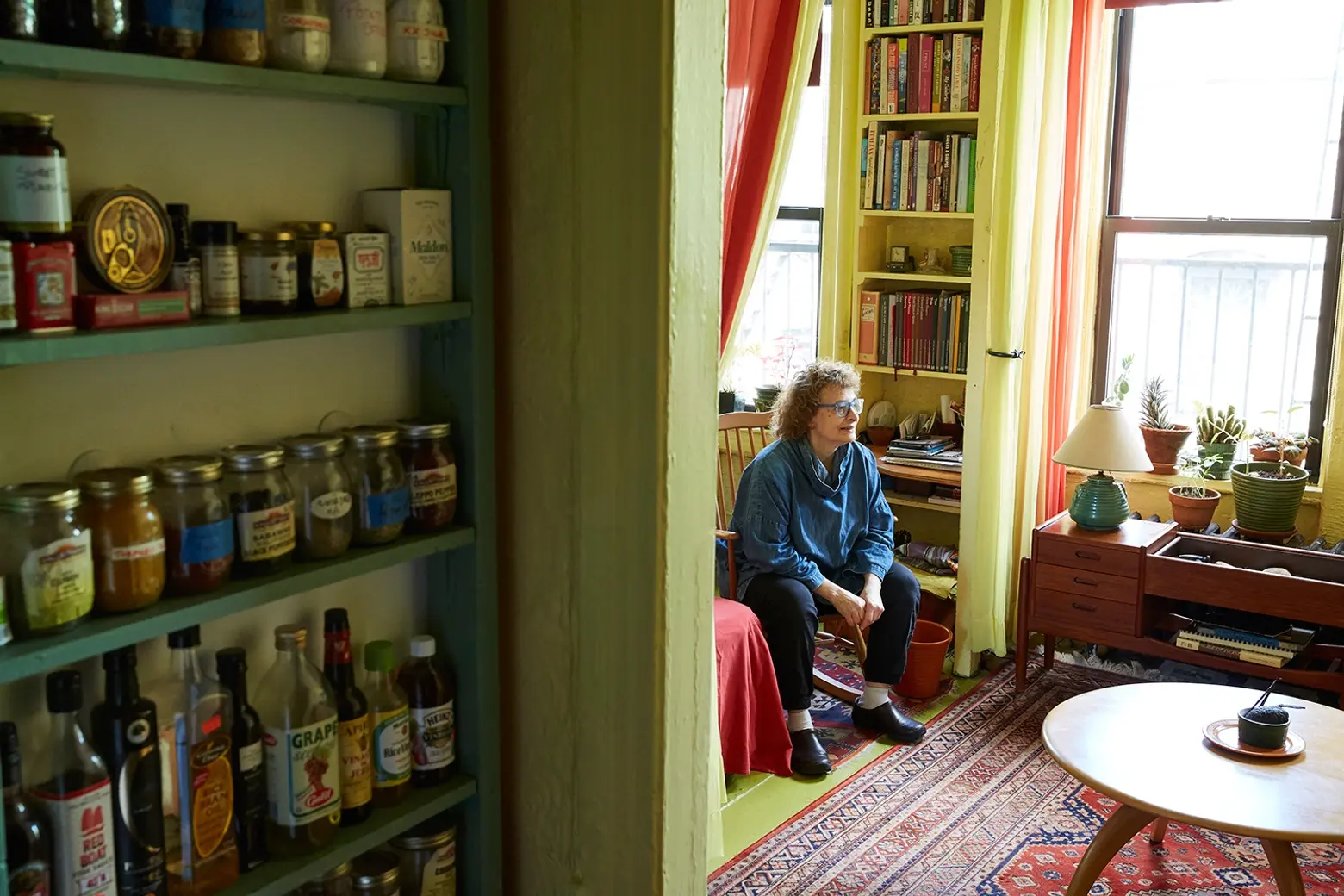
 What are some of your favorite features of the apartment?
What are some of your favorite features of the apartment?
The best things about my apartment are the good light and quiet that comes from living on the top floor. The apartment is my refuge from the ant farm that Manhattan often feels like. I prefer to call my neighborhood the South Village, as I honestly have little love for Soho these days. The designated blocks of the South Village are zoned for six stories and under and the storefronts are small which enables the neighborhood to still feel less crowded and have more light. There are some trees left and a few small local parks. And then there are the mourning doves in my backyard.
If not Soho, where in the city do you find inspiration for your work?
I find most inspiration in traveling to the other boroughs these days, where neighborhoods have some character and interesting food shopping; Astoria, Borough Park, Arthur Avenue, and Jackson Heights. When I travel, street markets are my first and foremost destination.
Any projects we should look out for from you?
I take lots of botanical photographs as a side interest. I hope to transfer some to textile prints in the future. I’m still working on the imagery.
All photos taken by Brett Wood exclusively for 6sqft. Photos are not to be republished without written permission from 6sqft.
RELATED:
Interested in similar content?
Leave a reply
Your email address will not be published.
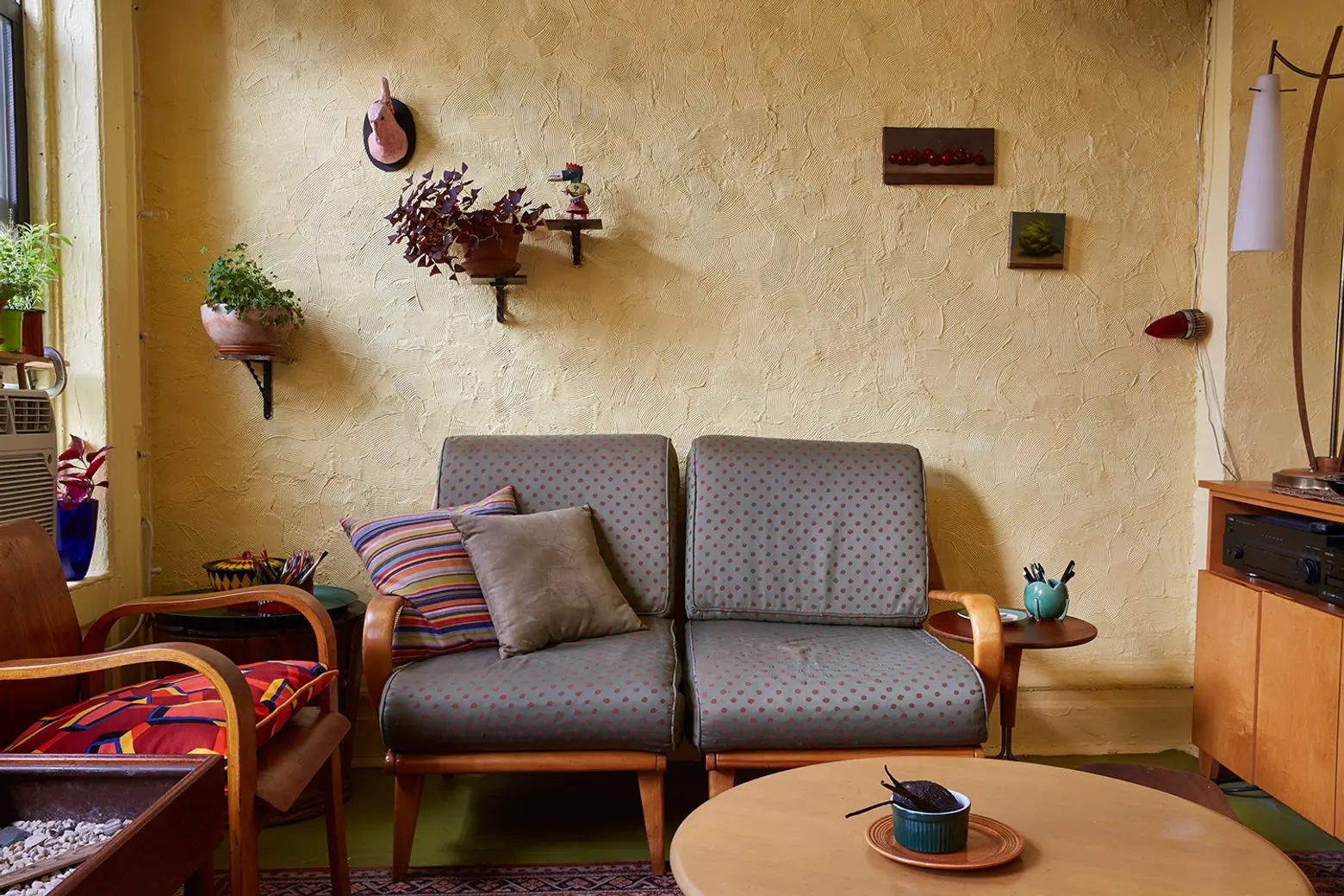
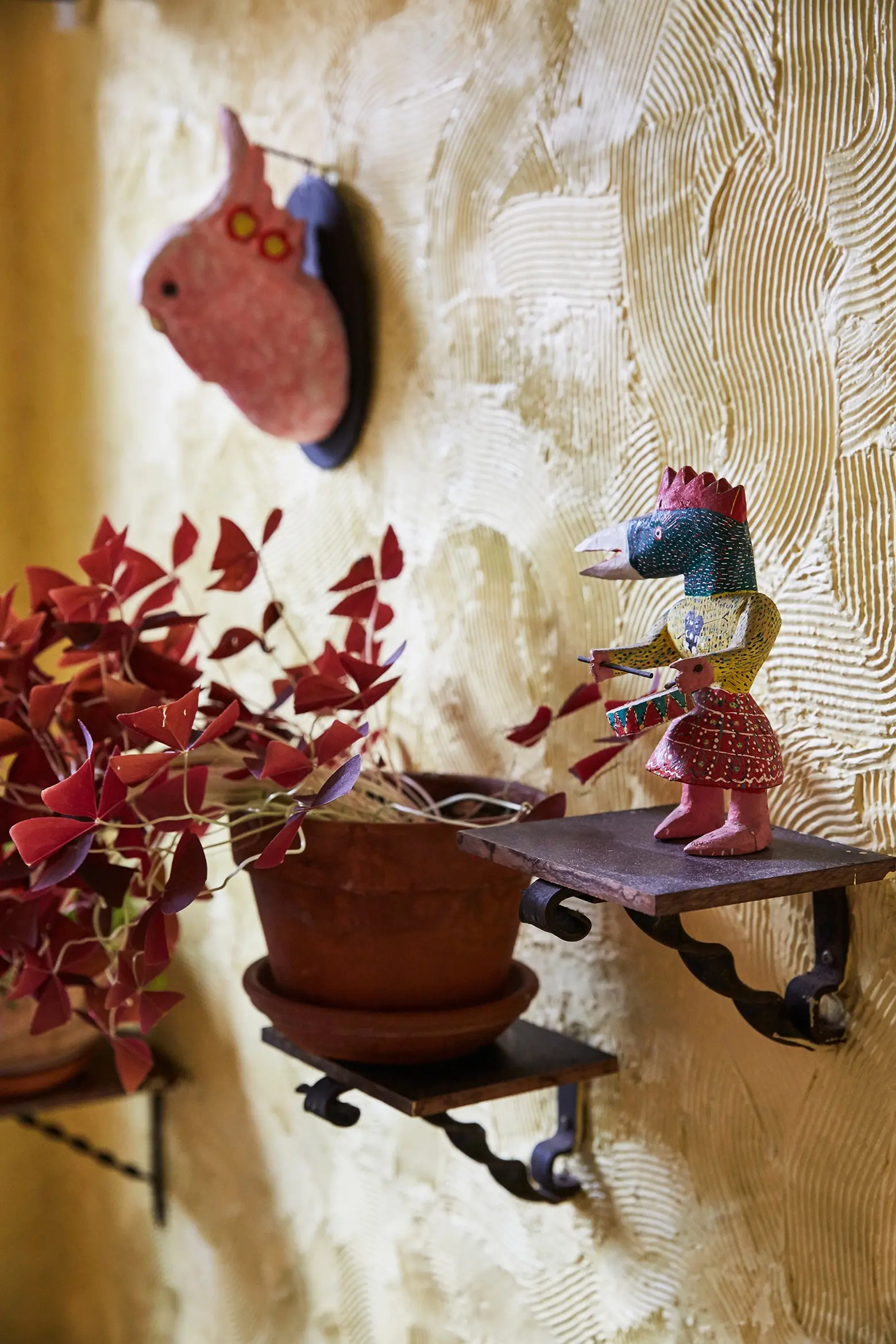
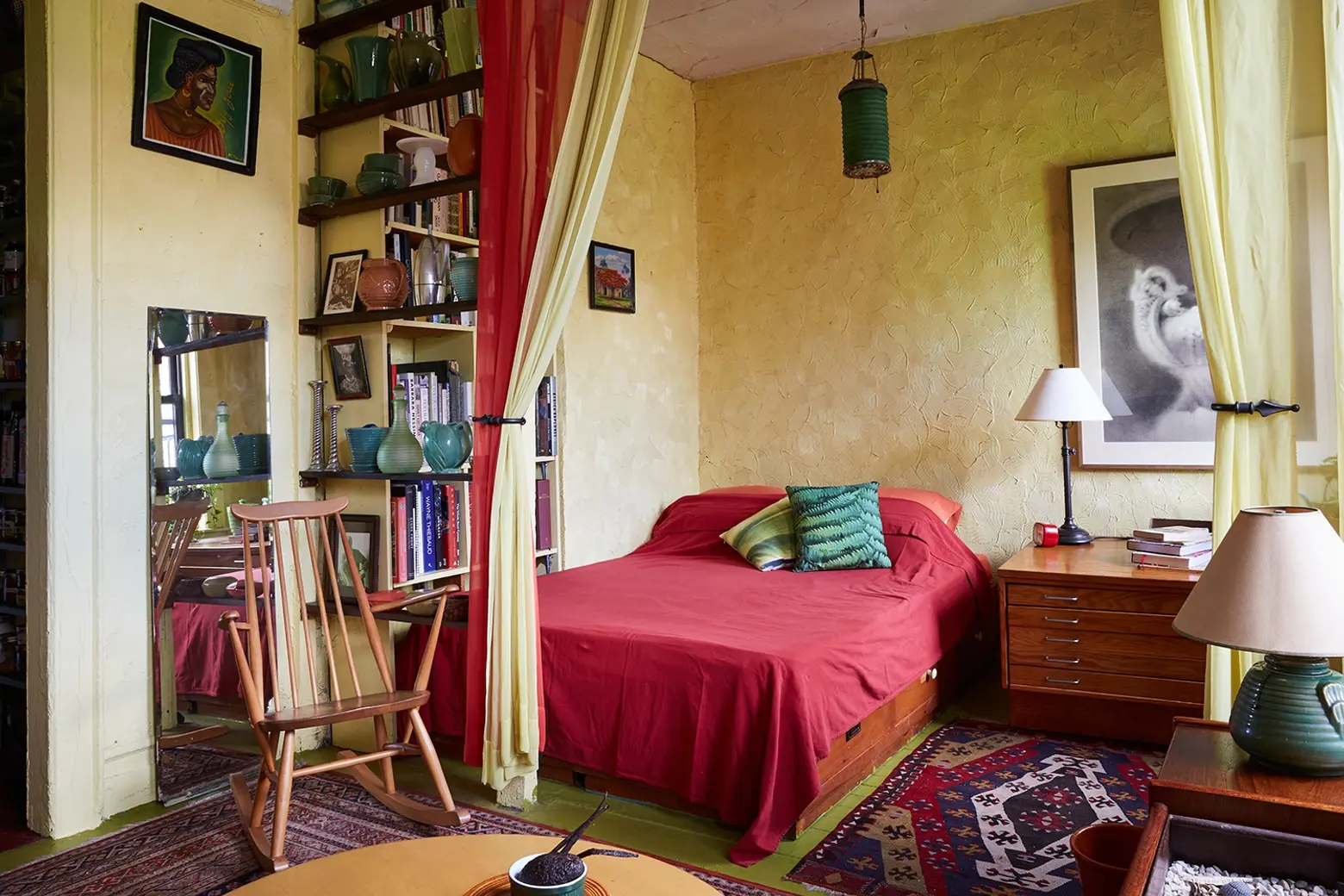
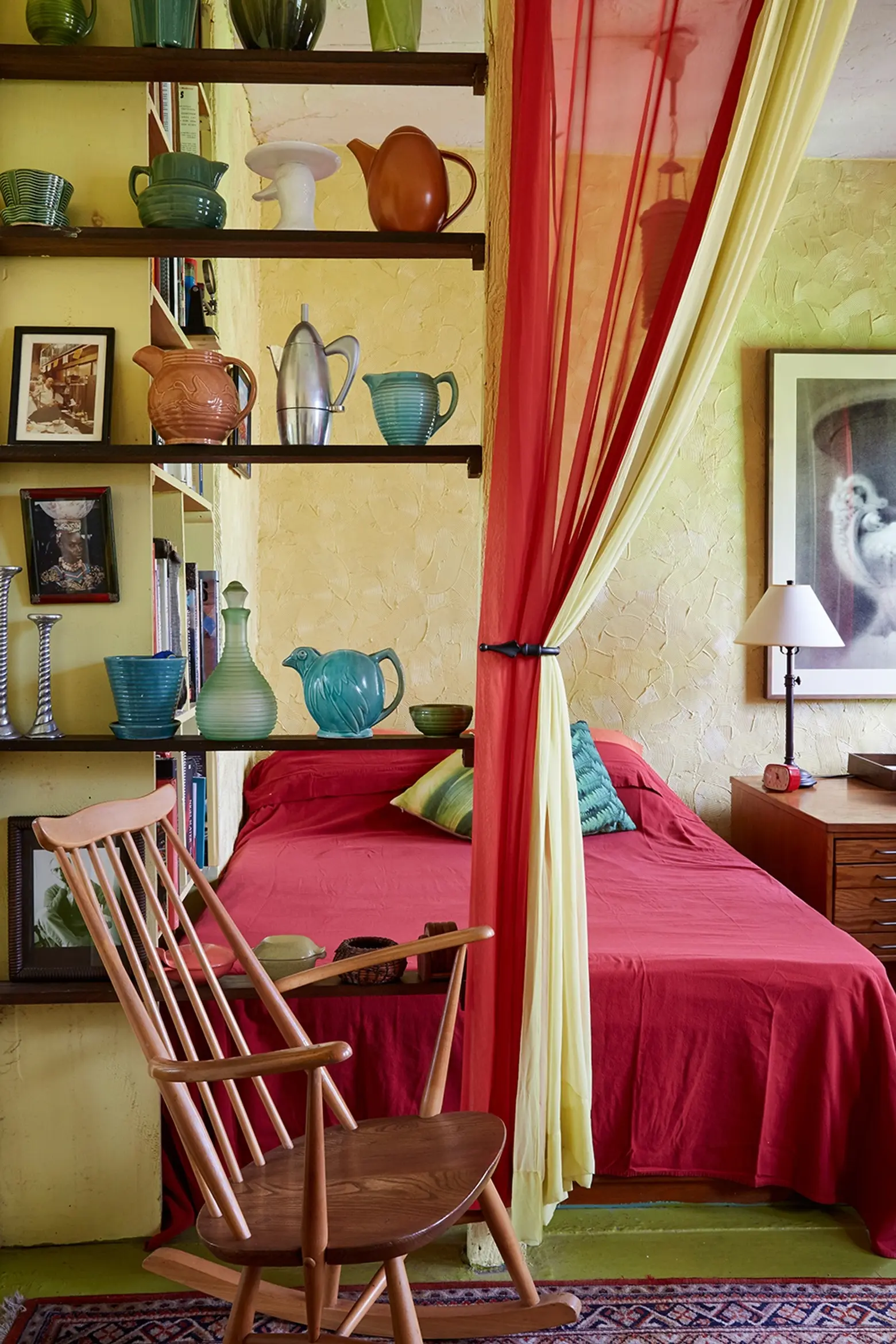
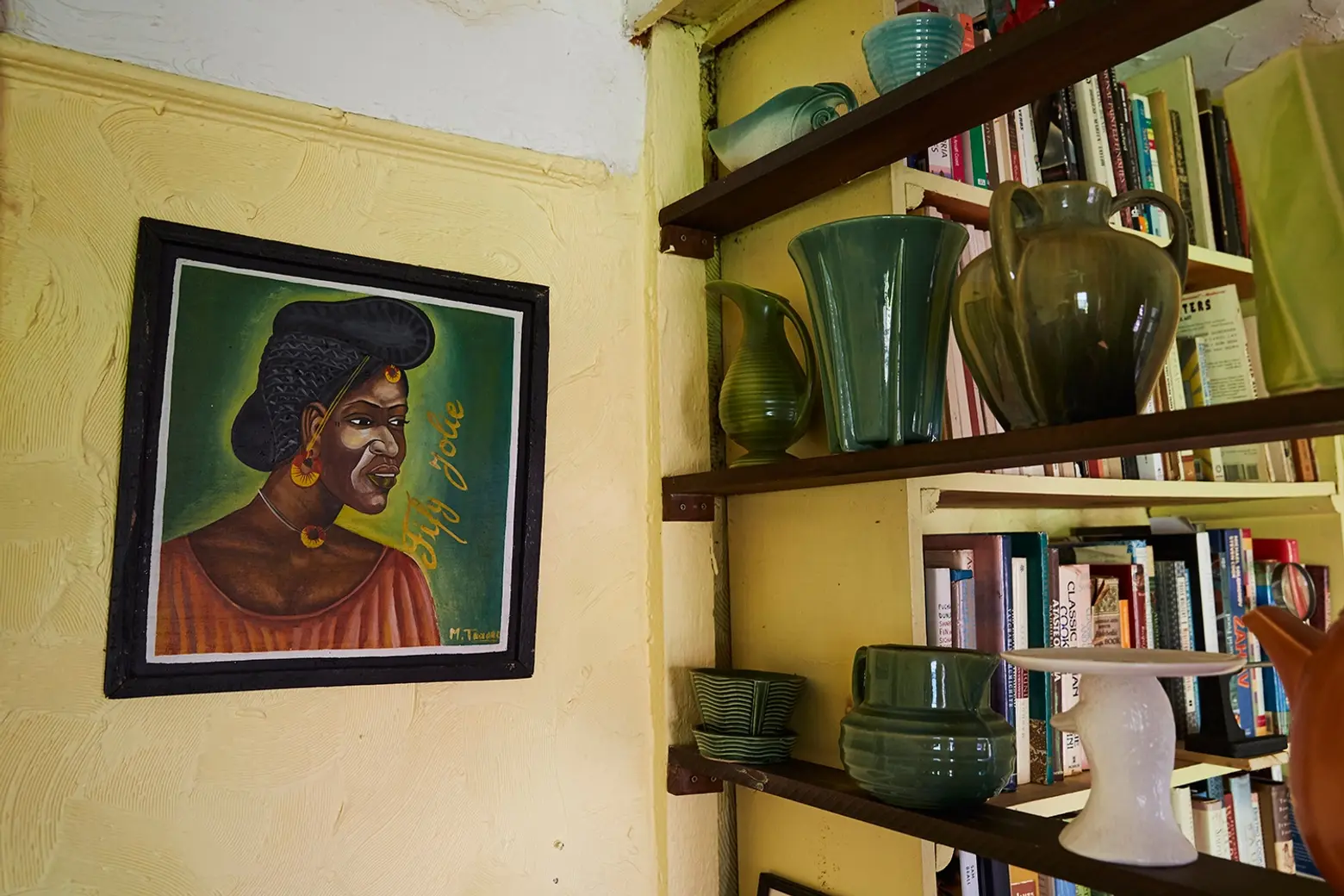
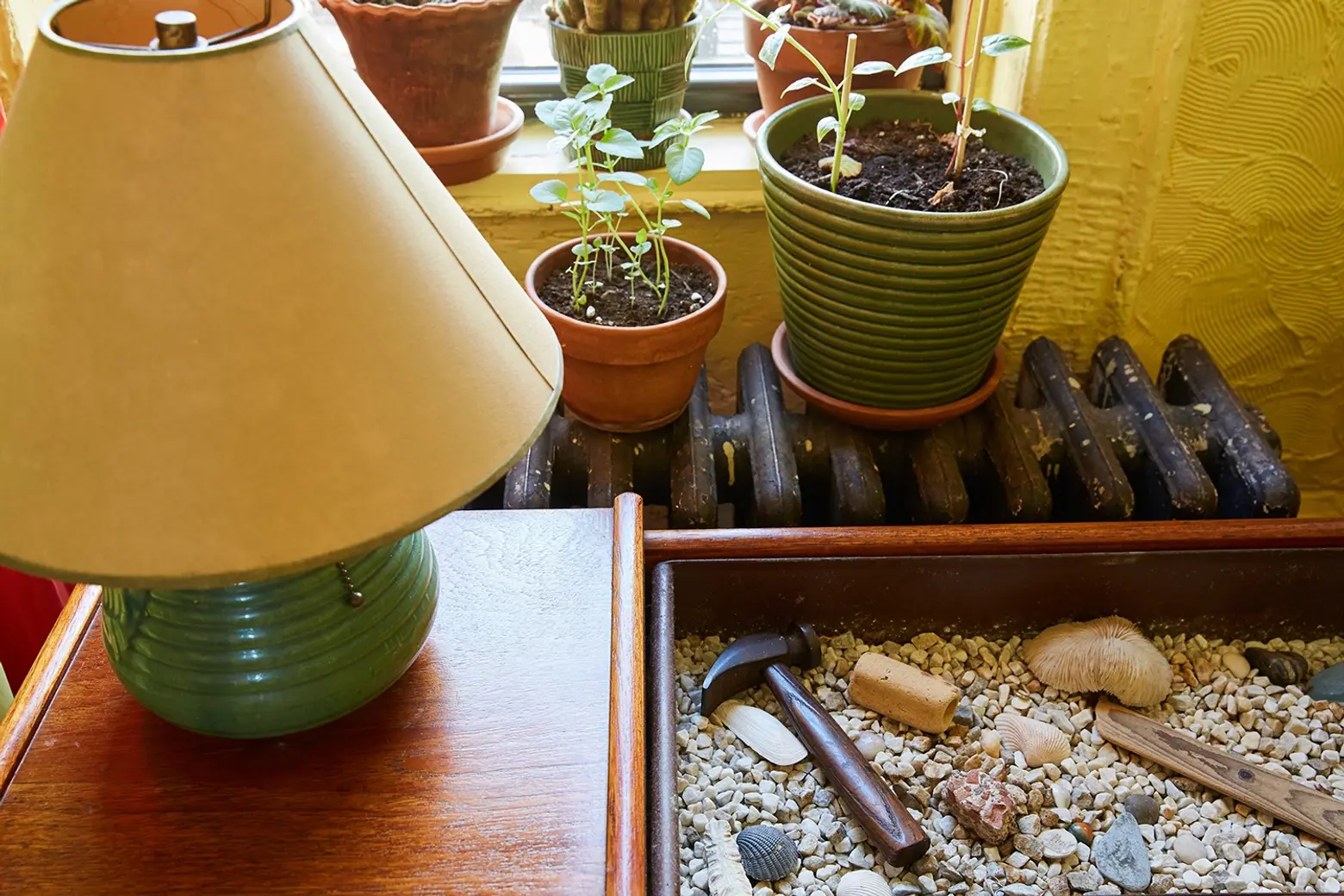
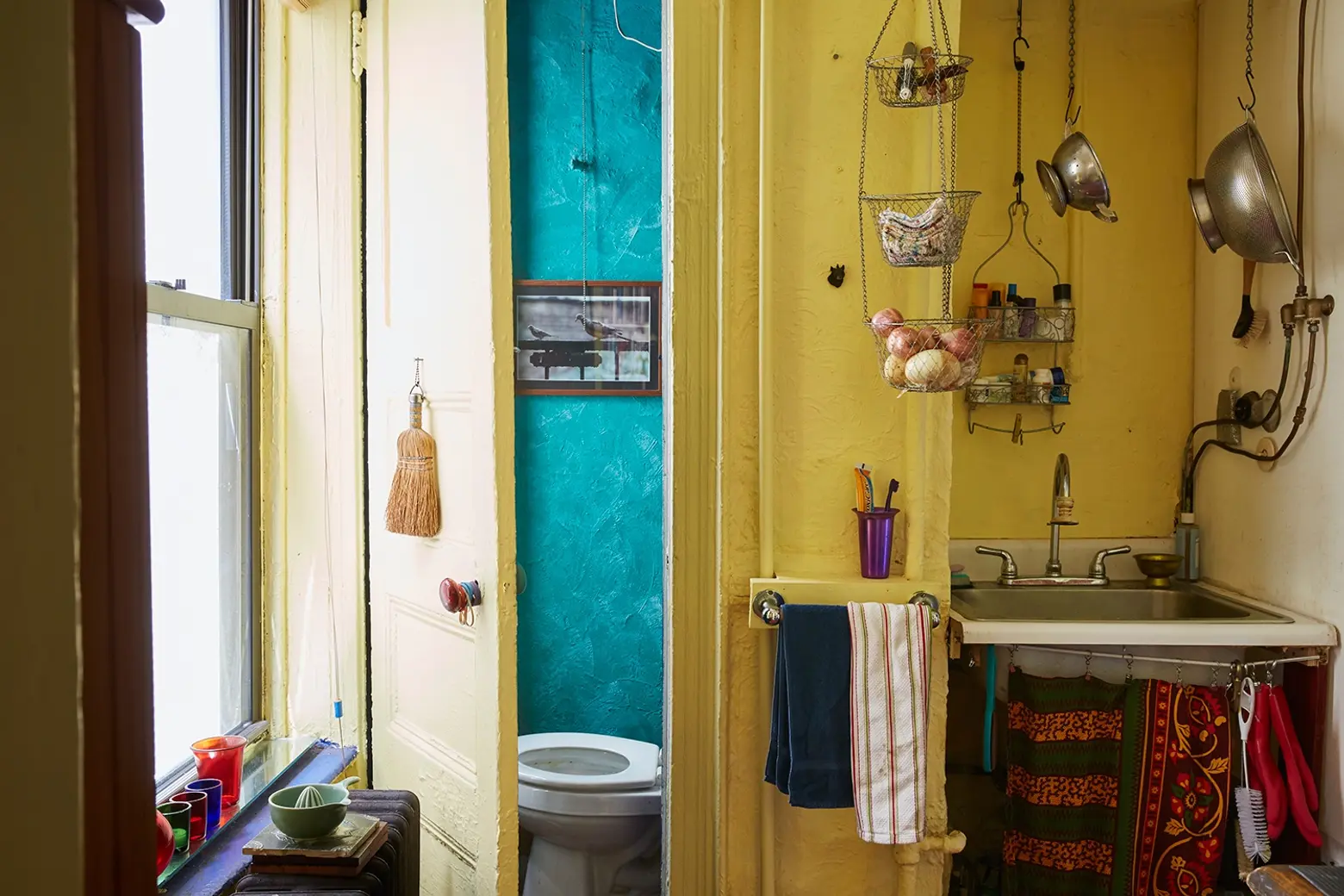
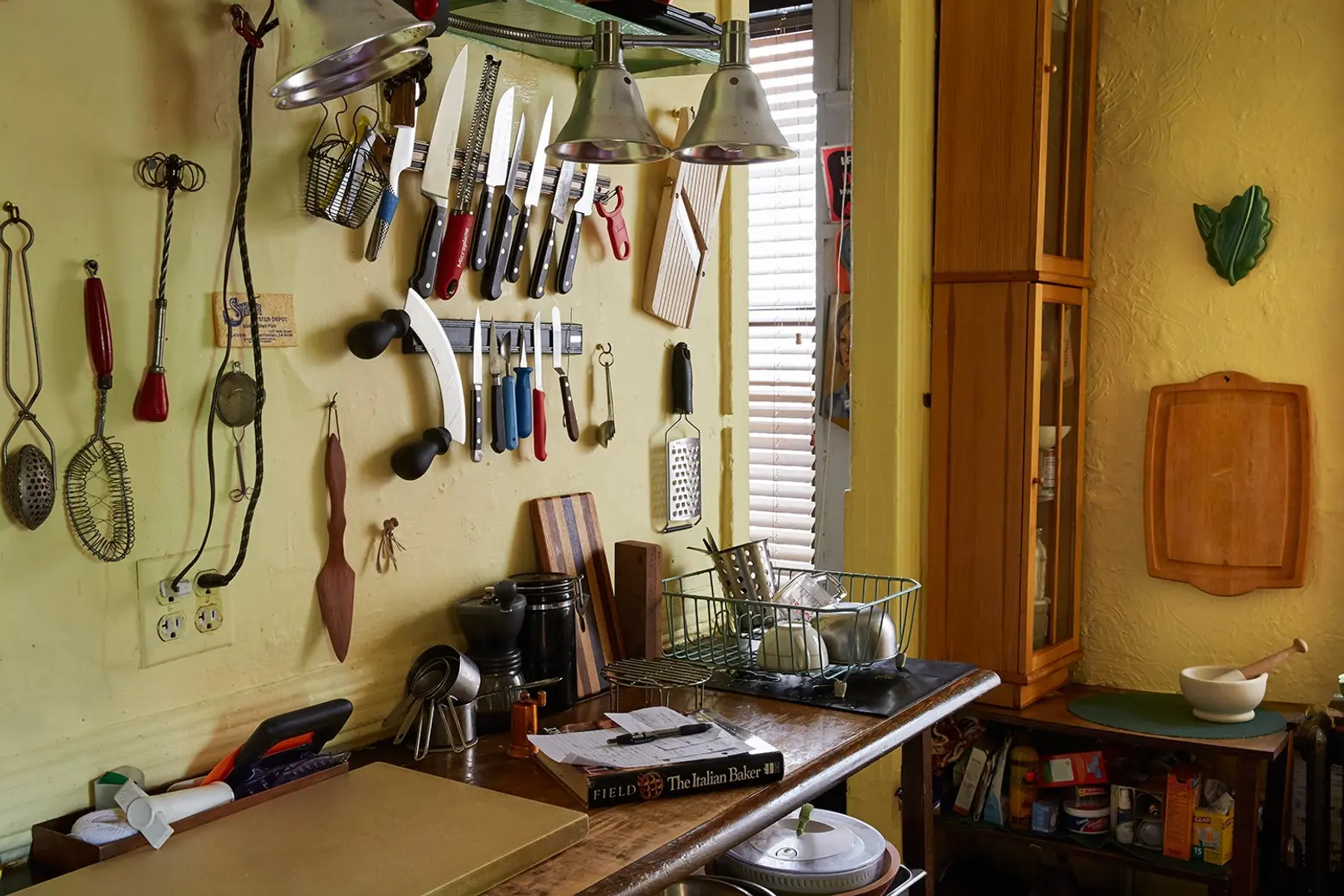
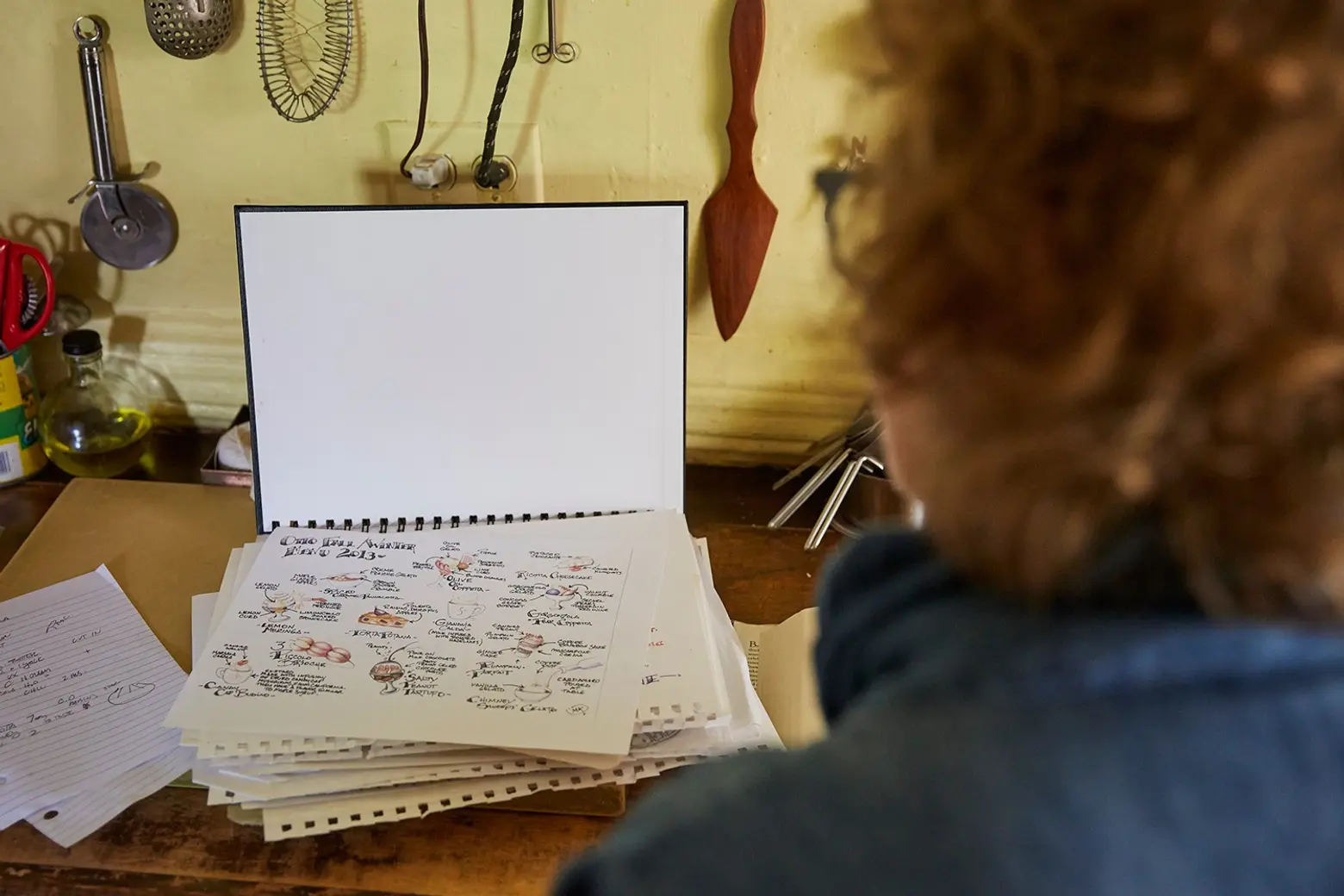
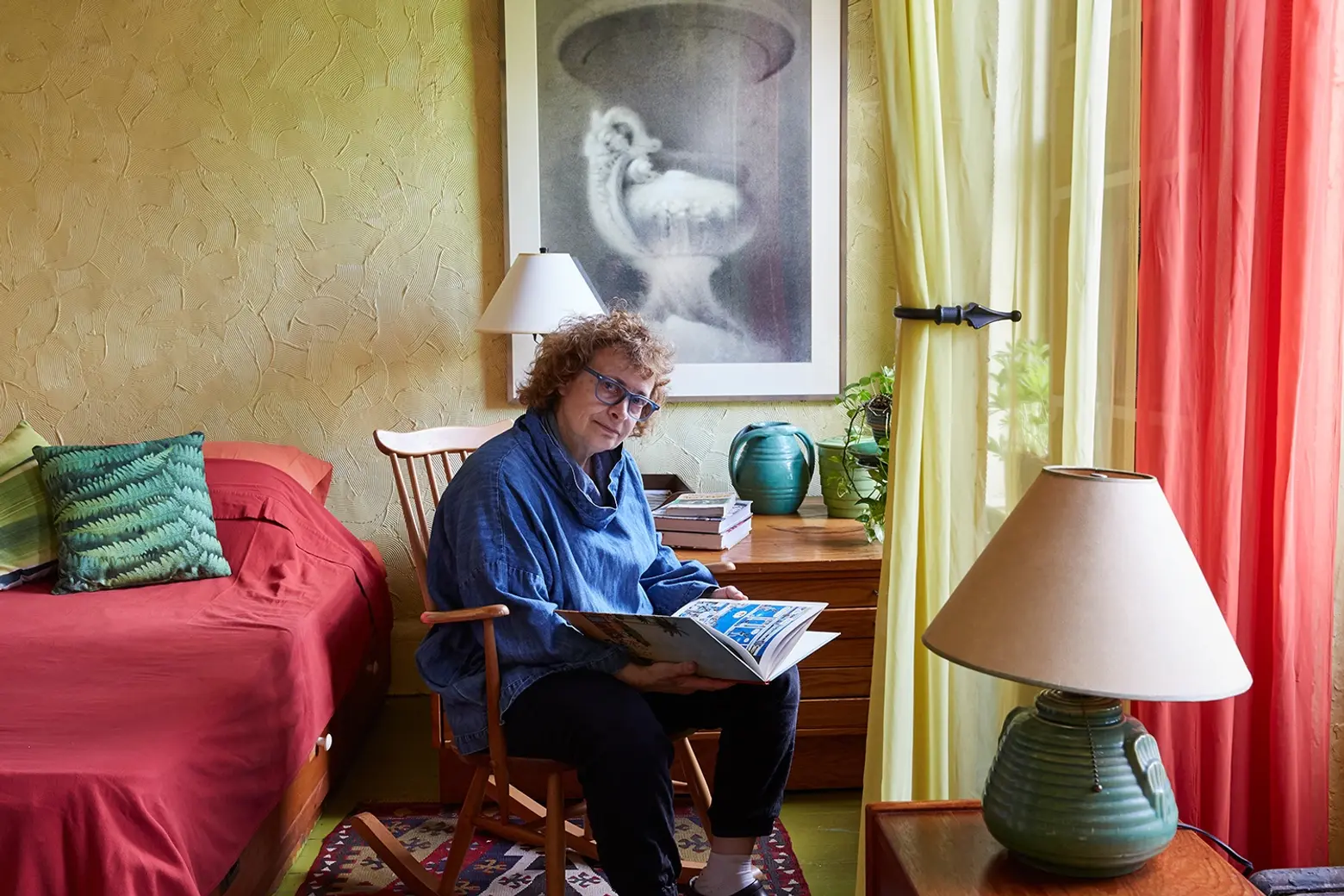
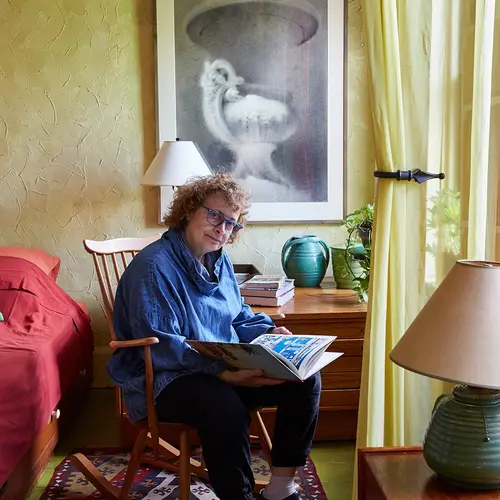
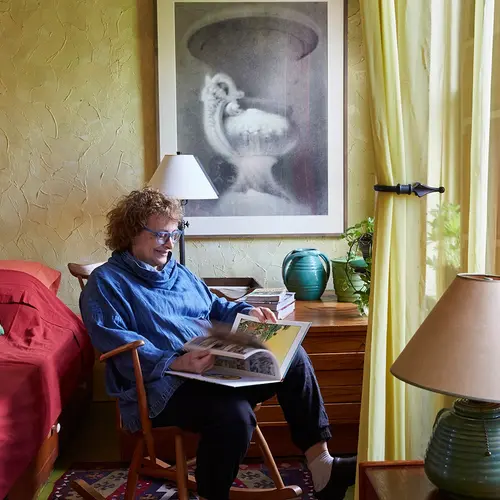
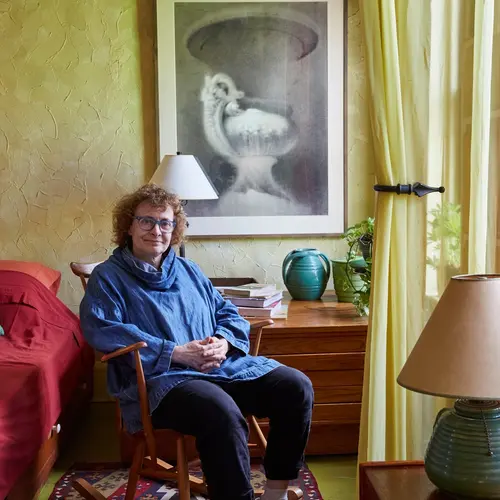
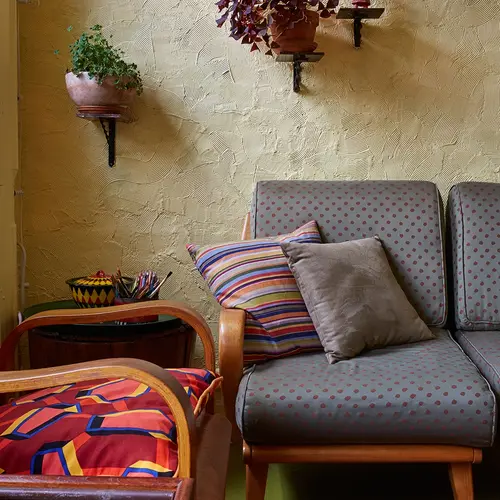
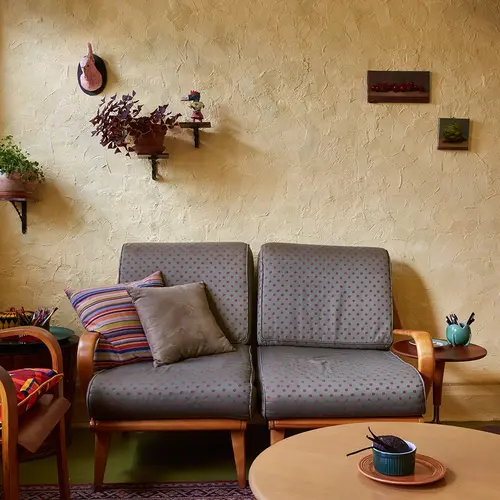
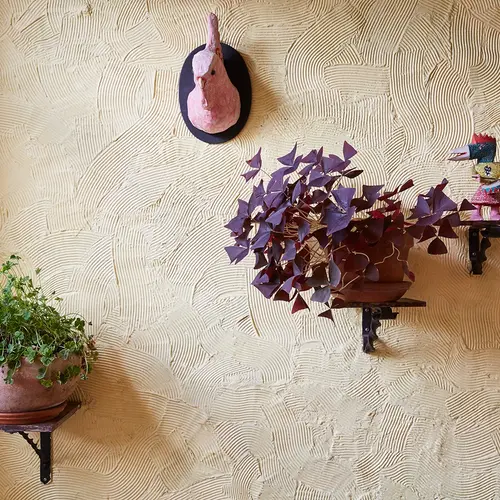
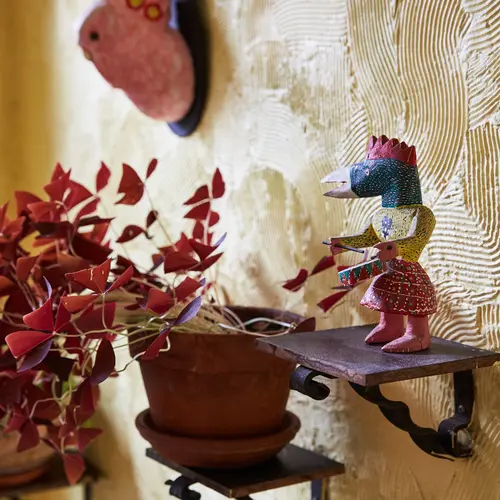
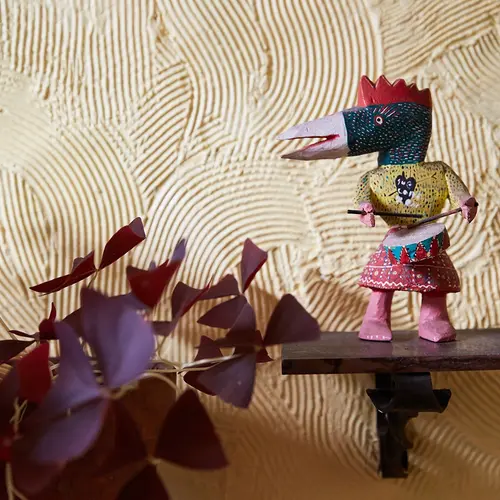
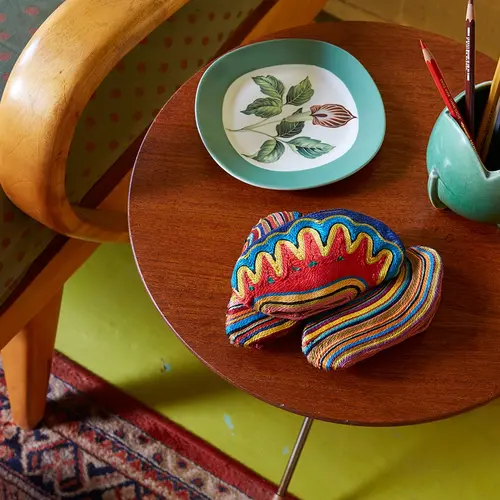
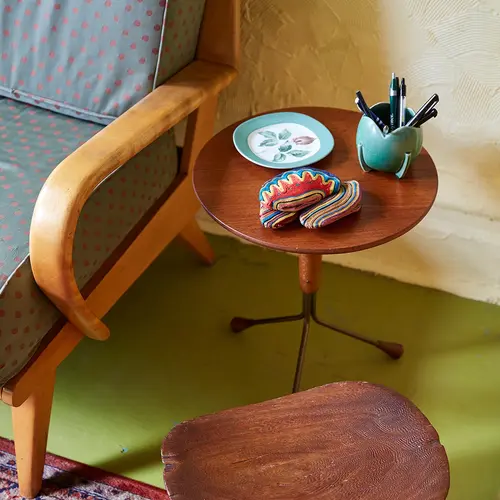
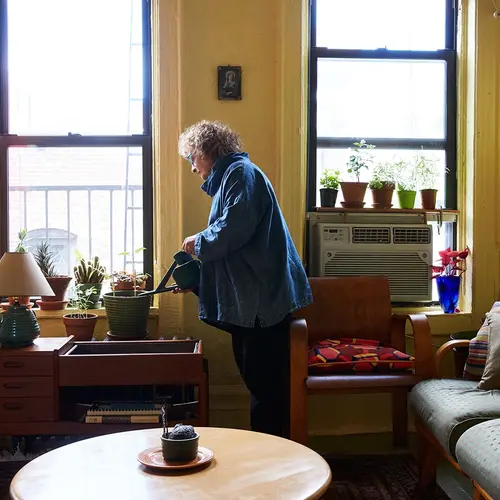
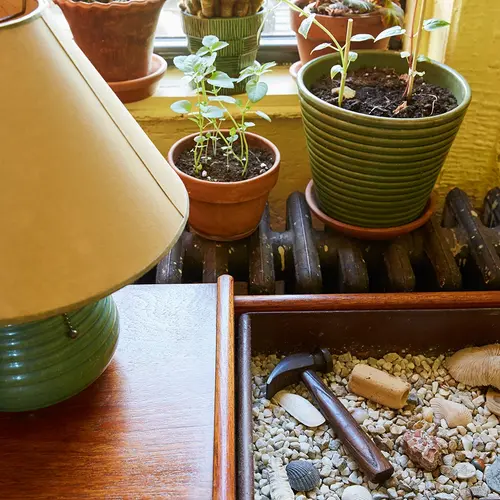
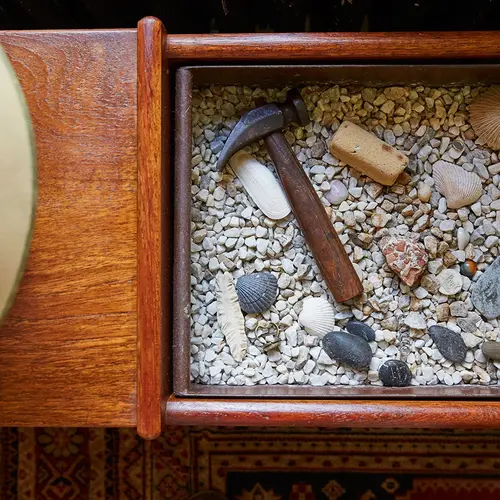
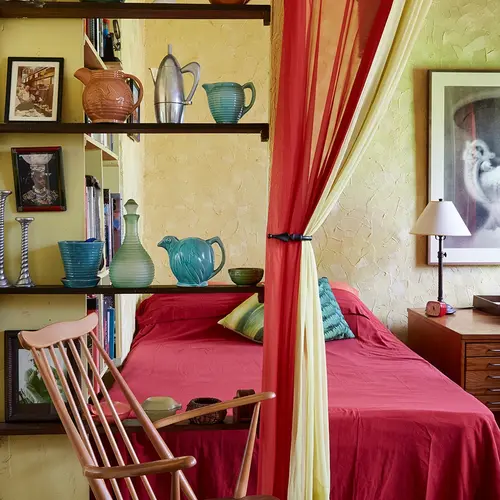
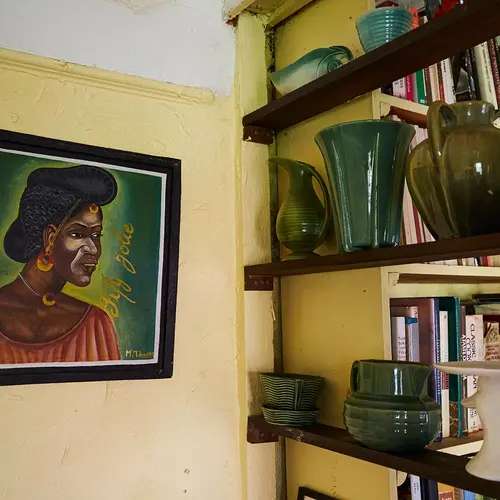
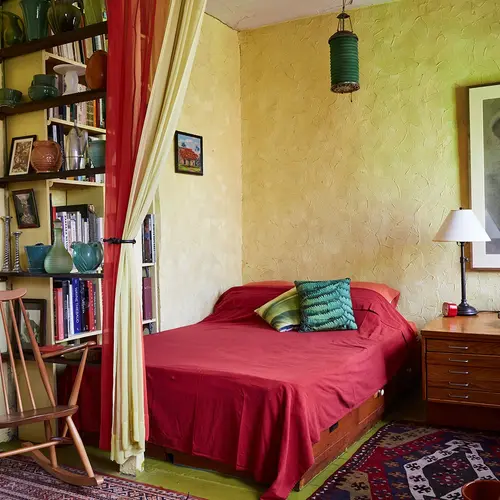
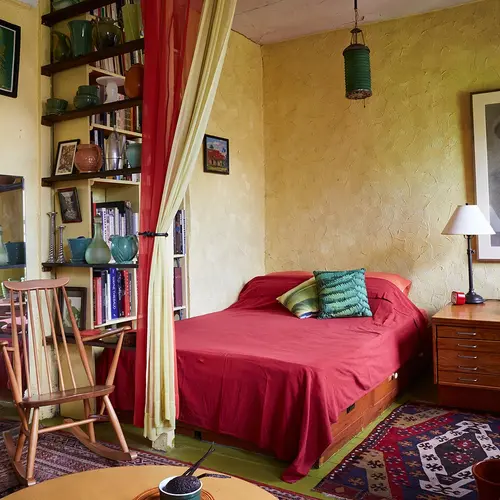
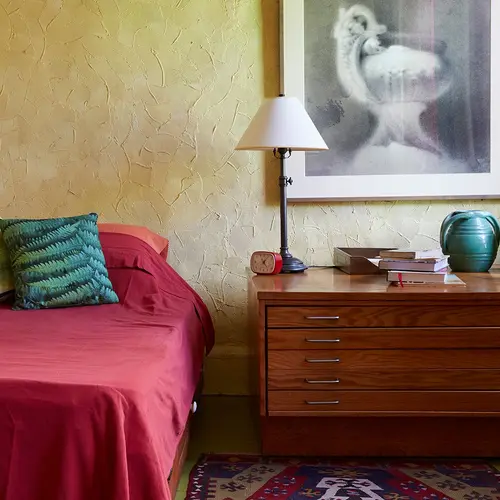
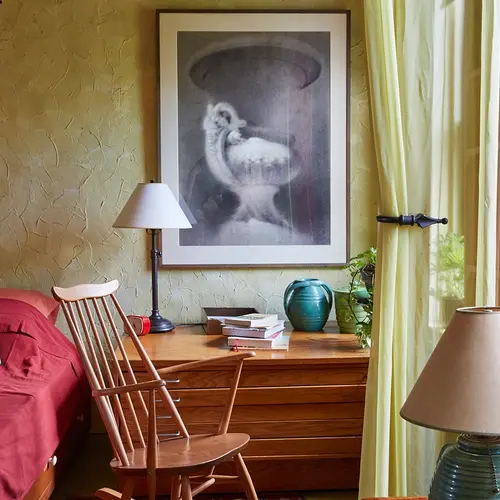
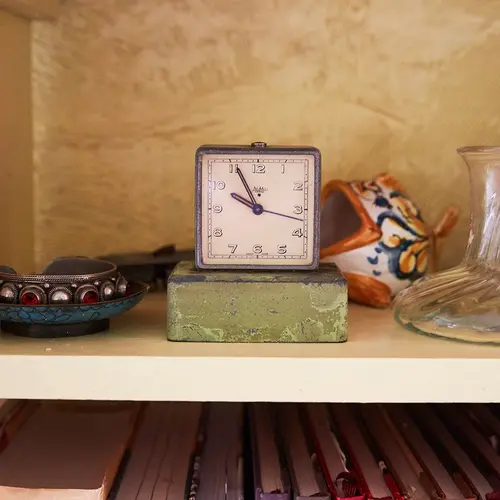
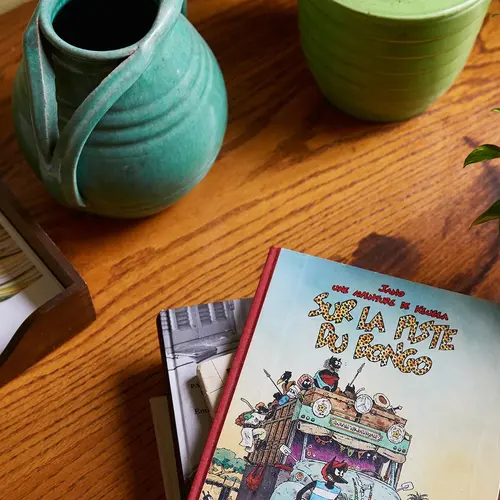
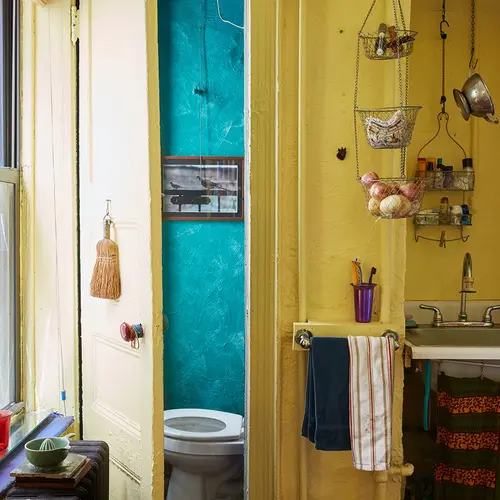
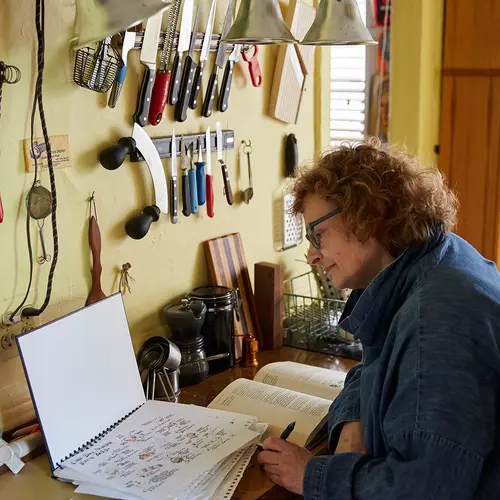
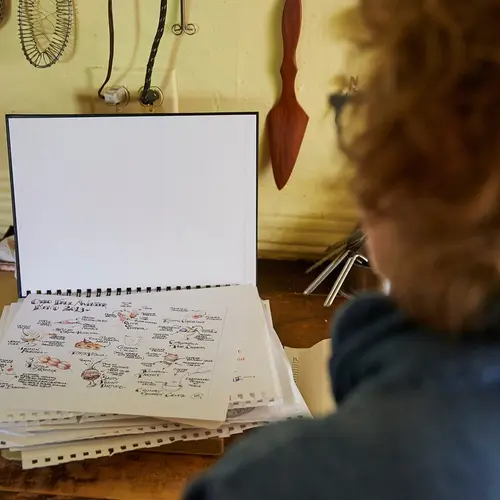
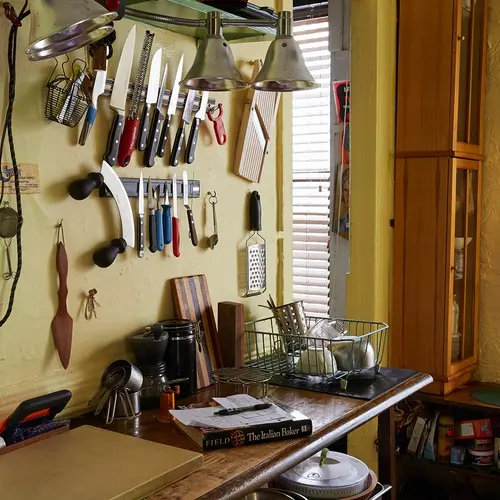
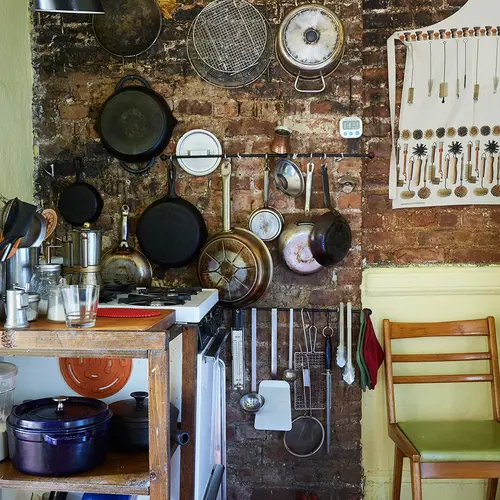
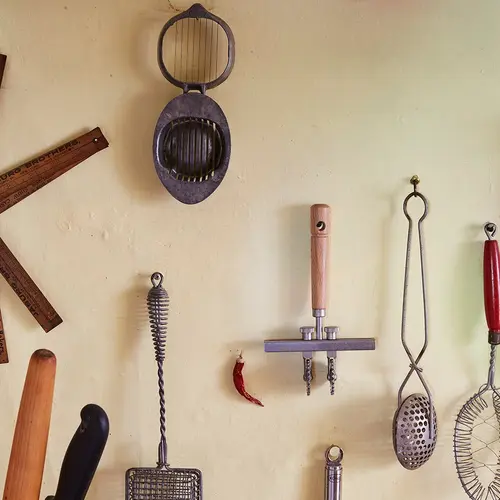
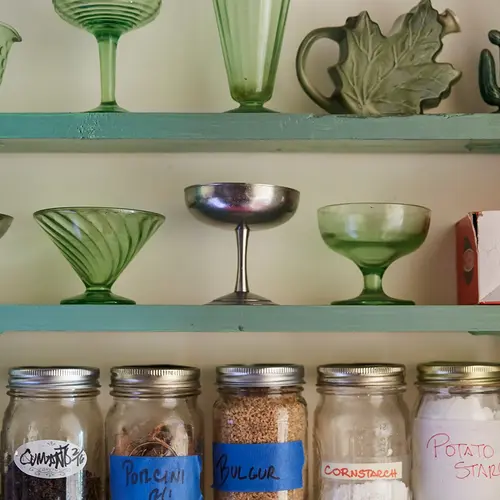
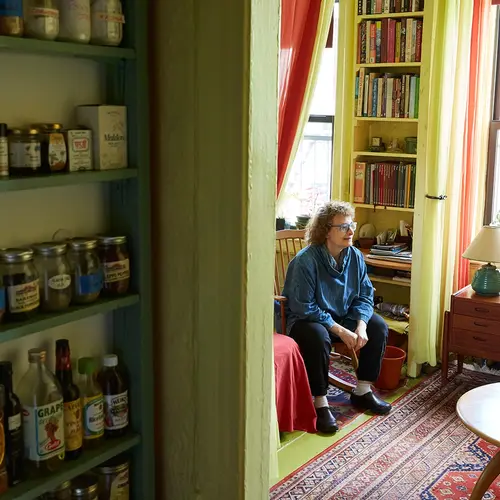
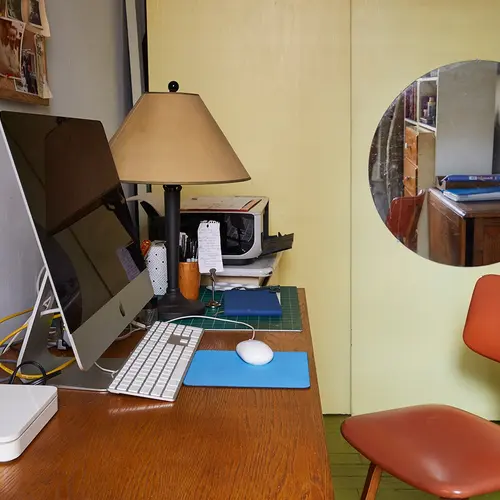
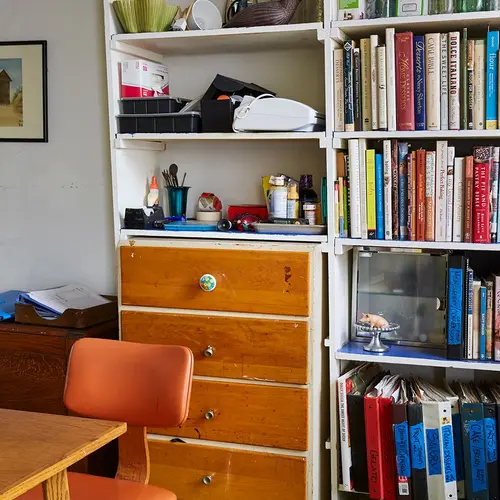
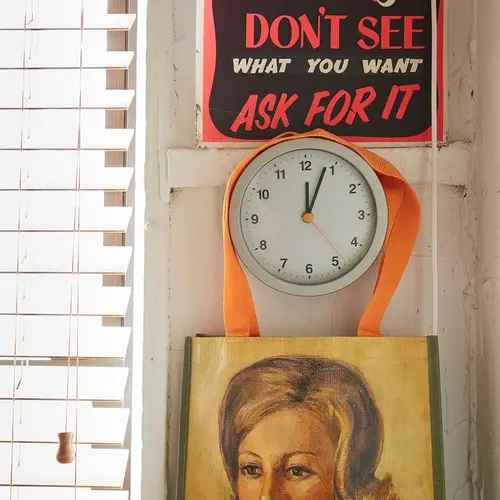
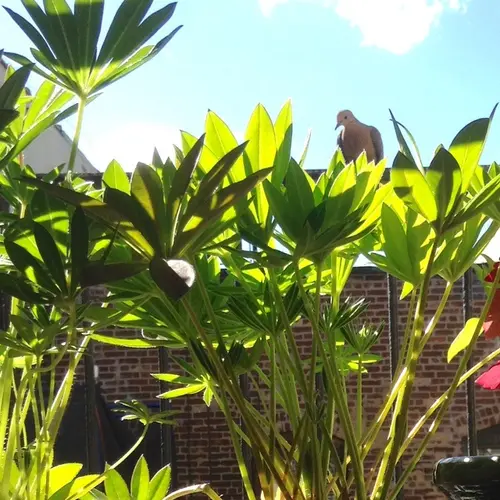
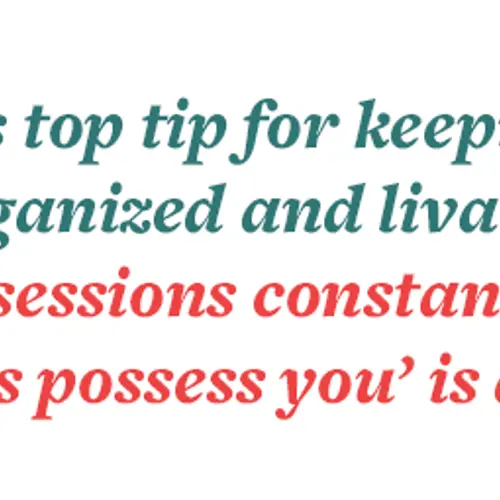
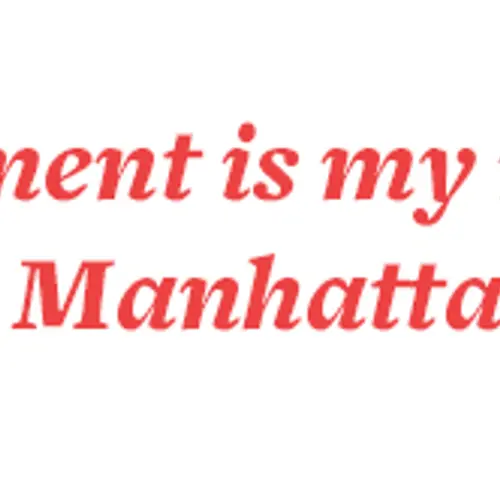
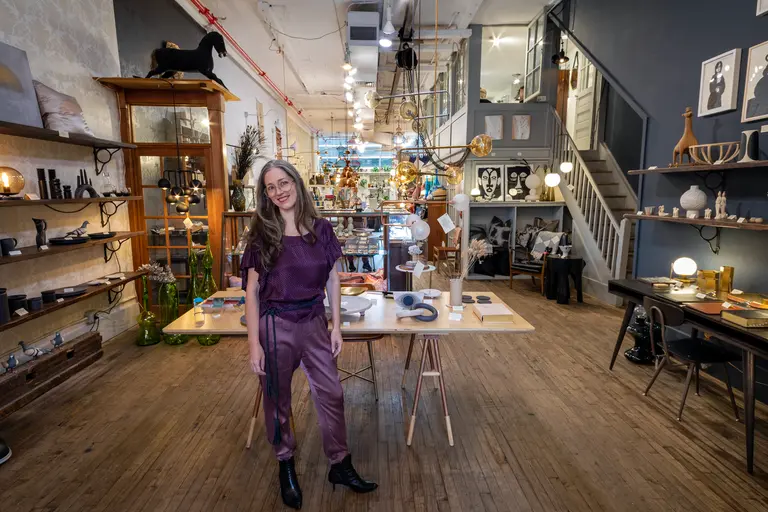
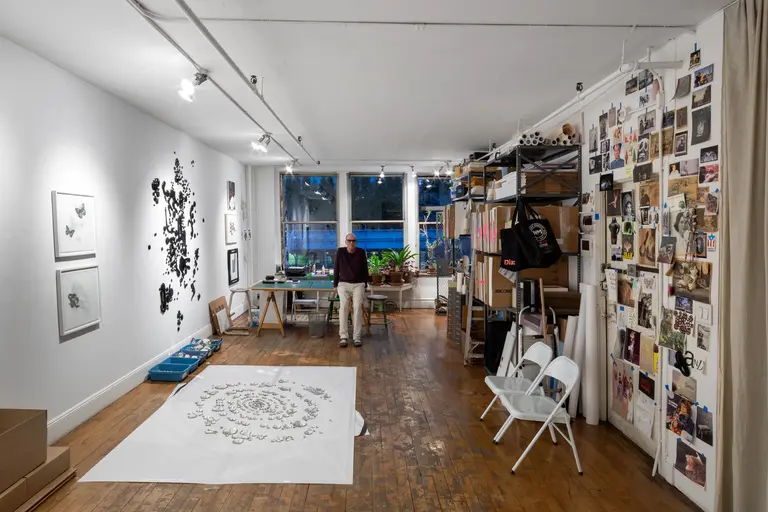
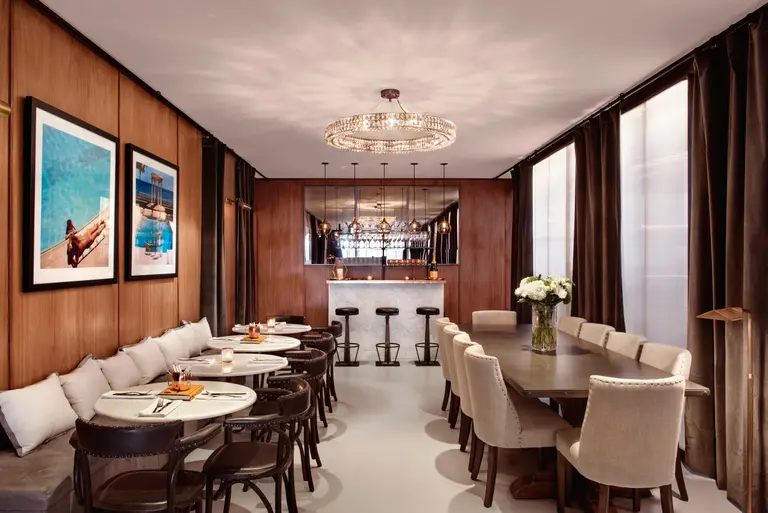
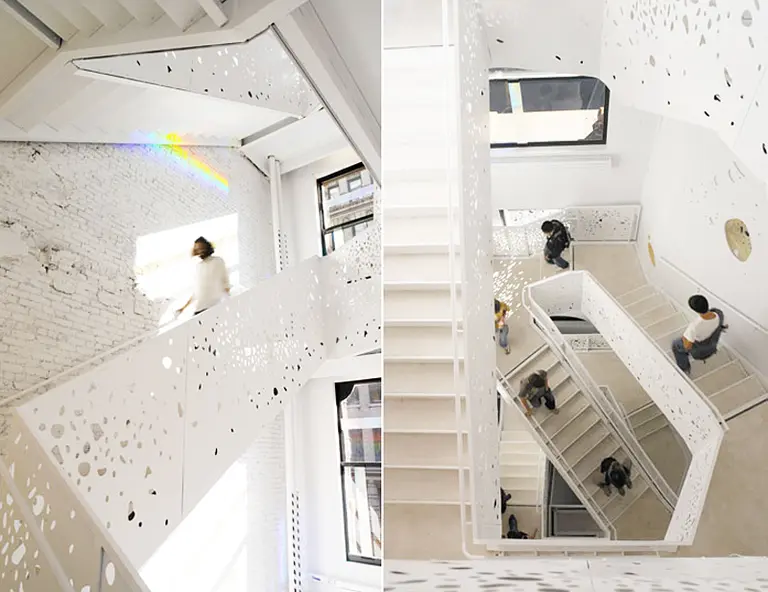
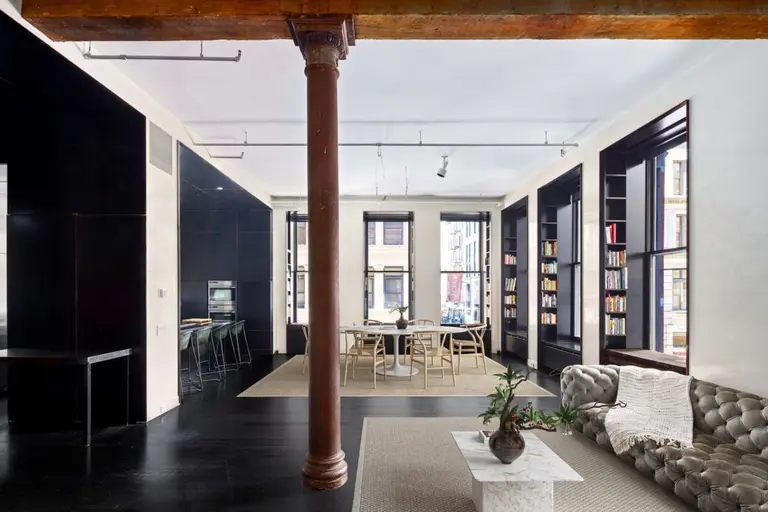
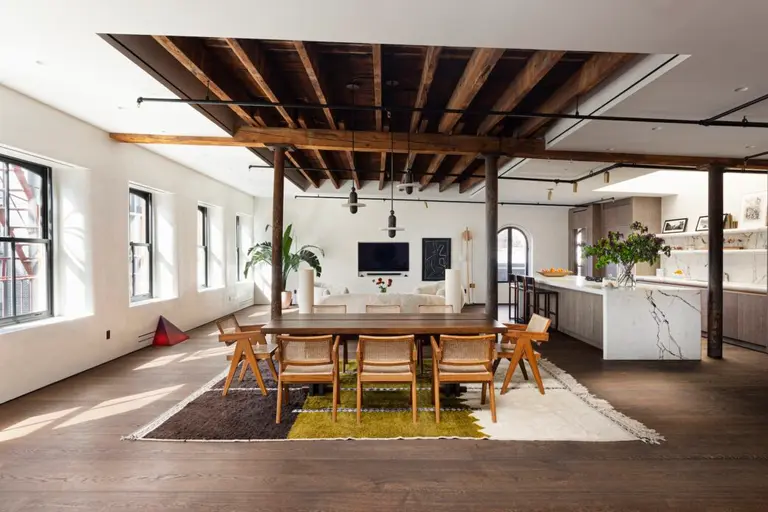





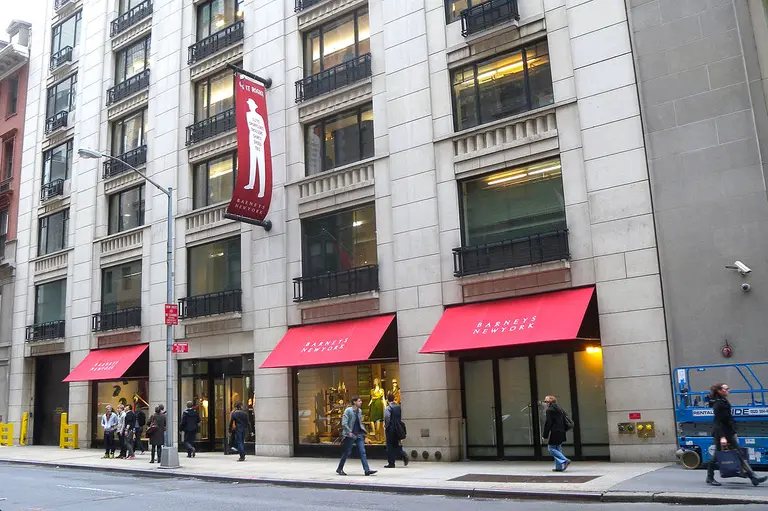
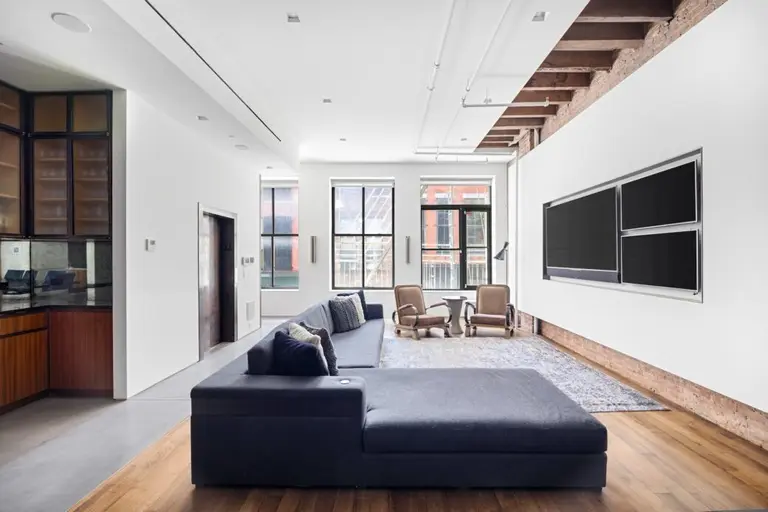
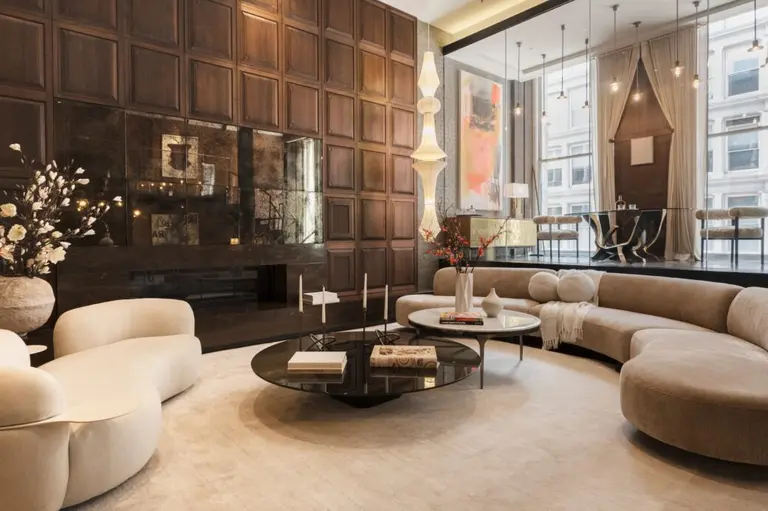
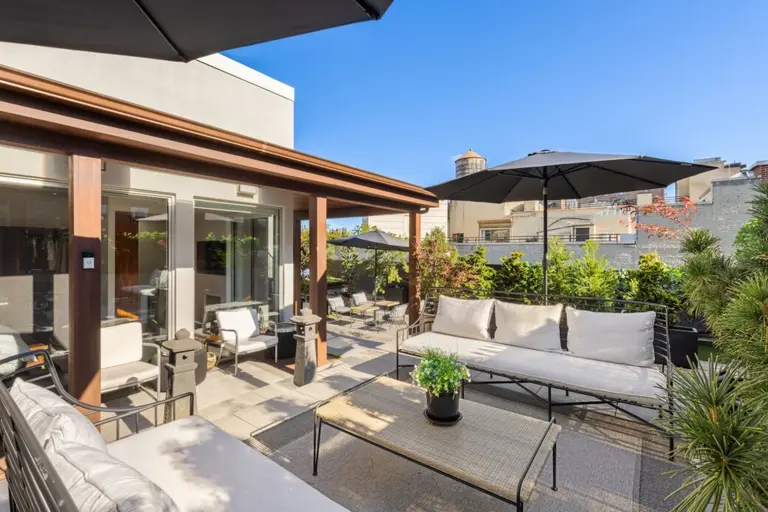
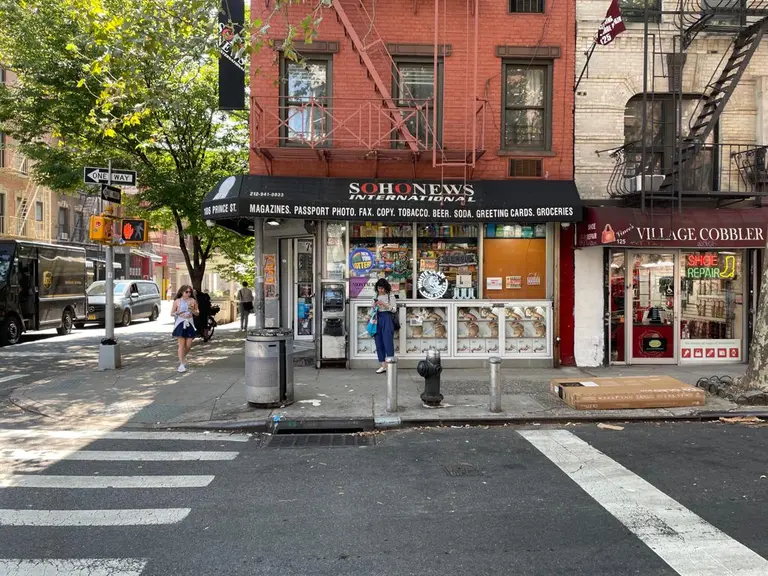
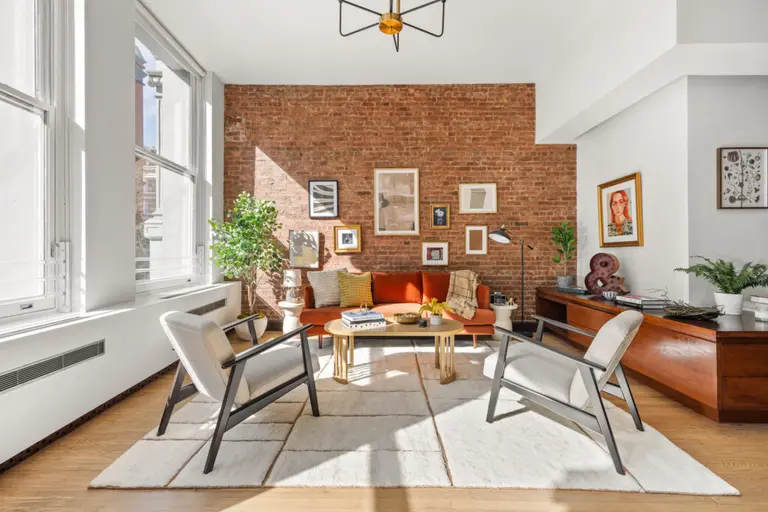












She’s done a beautiful job with what really is a very modest space.